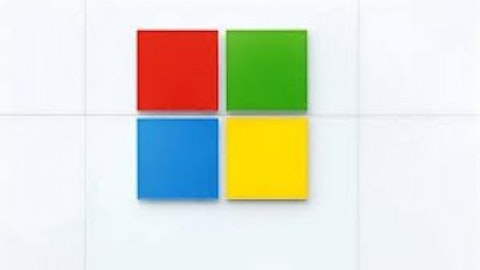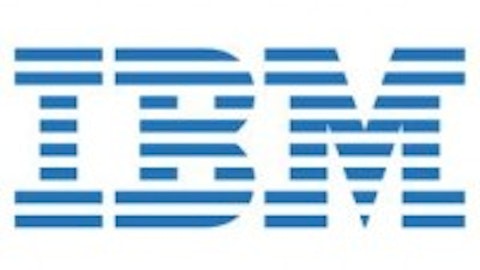Competition could be to blame — or is it?
Although slumping revenue is typically easier to swallow if a company can point their finger at its competitors, this is not necessarily the case here. Considering that Intel has held less than a 2% market of the mobile-based processor market since last year, the finger pointing may need to reverse itself right back to Intel itself.
With this in mind, Intel’s competitors are also surging forward in the mobile device arena. Take, for example, QUALCOMM, Inc. (NASDAQ:QCOM). This company has its processors in the handsets of products that are produced by smartphones leaders such as Samsung, Apple Inc. (NASDAQ:AAPL), and HTC. Adding to this is the substantial amount of money being saved — and risk being avoided — by QUALCOMM, Inc. (NASDAQ:QCOM) in that it doesn’t own any chip-producing factories, but rather contracts with its suppliers.
Taking heed from a leader
Intel is not alone in its proverbial fall from grace in the processor market. The declining personal computer market has also had a grave effect on the likes of Microsoft Corporation (NASDAQ:MSFT). Due in part to the so-so demand for Microsoft’s new Windows 8 operating system, the company that once had a highly profitable partnership with Intel is also starting to feel the heat.
The big difference, though, between how Intel Corporation (NASDAQ:INTC) and Microsoft Corporation (NASDAQ:MSFT) have dealt with the PC market decline is that Microsoft has opted to form a partnership with Nokia Corporation (ADR) (NYSE:NOK), a giant in the smartphone sector — to feature the Windows OS on certain Nokia Corporation (ADR) (NYSE:NOK) devices.
Making matters worse for Intel is the fact that a majority of the smartphones that use this operating system are working on chips that are manufactured by QUALCOMM, Inc. (NASDAQ:QCOM). When it comes to non-PC related collaboration with Microsoft i.e. mobile and console, the last nail in Intel’s coffin could be the upcoming partnership between Microsoft Corporation (NASDAQ:MSFT) and Advanced Micro Devices, Inc. (NYSE:AMD) to use AMD’s chips in the new Xbox game consoles.
Investors are keeping their heads in the clouds
Given that fewer consumers are relying on PCs anymore, and coupled with Intel’s lackluster forward movement into the mobile device arena, and the high risks attached in doing so, investors who are considering the purchase of shares — or more shares — may first need to come down from the clouds.
With the massive head start that companies such as Qualcomm have with mobile technology, along with some of the strategic partnerships that have been forged with Intel’s competitors, the outlook for any profit growth at all — other than a $0.90 per share dividend — from shares of this fallen chip maker is bleak.
A realistic bottom line
Although the shares of Intel Corporation (NASDAQ:INTC) are now trading significantly above the company’s 52-week low, the unfortunate truth is that Intel is not likely to turn itself around before long. With such a large share of Intel’s revenue coming from the dying PC market, sales from its server segment might not be enough to offset this rapid decline. And, as far as mobile-world penetration goes, Only time will tell if Haswell will be worth the investment.
The article Overconfidence Continues to Chip Away at Earnings originally appeared on Fool.com and is written by Nauman Aly.
Nauman Aly has no position in any stocks mentioned. The Motley Fool recommends Intel. The Motley Fool owns shares of Intel, Microsoft, and Qualcomm. Nauman is a member of The Motley Fool Blog Network — entries represent the personal opinion of the blogger and are not formally edited.
Copyright © 1995 – 2013 The Motley Fool, LLC. All rights reserved. The Motley Fool has a disclosure policy.


